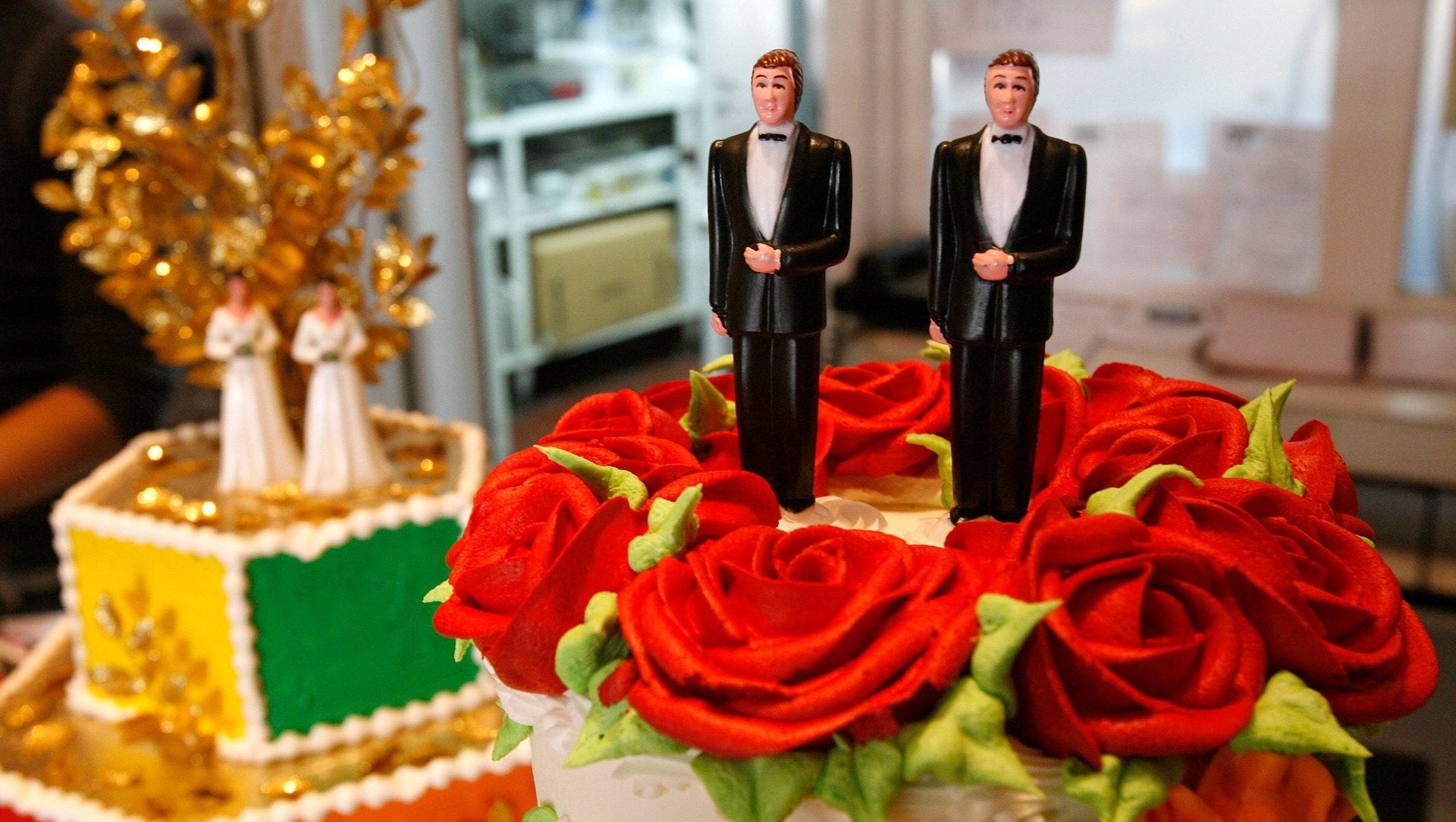The Supreme Court’s Colorado baker decision contains a robust defense of gay rights
The US Supreme Court ruled 7-2 today in favor of a Colorado baker who refused to make a wedding cake for a gay couple.


The US Supreme Court ruled 7-2 today in favor of a Colorado baker who refused to make a wedding cake for a gay couple.
But the narrowly-written opinion doesn’t grant business owners the broad exemptions based on personal views that religious groups had hoped for, and civil rights groups feared, and even defends the rights of gay Americans.
Civil rights groups were concerned that the Supreme Court could rule broadly in Masterpiece Cakeshop vs. the Colorado Civil Rights Commission that making a cake amounted to free speech, opening the door for more small businesses to discriminate against gay couples under the First Amendment. Instead, the seven justices ruling in favor of Masterpiece focused on the specifics surrounding the Colorado baker’s complaint, and particularly how the state civil rights commission handled it.
Jack Phillips, the owner of Masterpiece, argued that baking—specifically, creating a custom wedding cake—is a form of self-expression, and that same-sex unions violate his faith. So, he argued, the state should exempt him from anti-discrimination laws because the constitution protects free speech and freedom of religion.
The fact that he refused to bake the couple’s wedding cake in July of 2012 made his obstinance “understandable,” according the Supreme Court decision, because gay marriage was not yet legal in Colorado at the time. It would later be legalized nationwide in the landmark 2015 Obergefell case.
His dilemma was understandable in 2012, which was before Colorado recognized the validity of gay marriages performed in the State and before this Court issued United States v. Windsor, 570 U. S. 744, or Obergefell. Given the State’s position at the time, there is some force to Phillips’ argument that he was not unreasonable in deeming his decision lawful. State law at the time also afforded storekeepers some latitude to decline to create specific messages they considered offensive.
The ruling also had harsh words for the Colorado Civil Rights Commission, which initially reviewed the dispute between baker and would-be clients, and favored the couple.
As the record shows, some of the commissioners at the Commission’s formal, public hearings endorsed the view that religious beliefs cannot legitimately be carried into the public sphere or commercial domain, disparaged Phillips’ faith as despicable and characterized it as merely rhetorical, and compared his invocation of his sincerely held religious beliefs to defenses of slavery and the Holocaust. No commissioners objected to the comments. Nor were they mentioned in the later state-court ruling or disavowed in the briefs filed here. The comments thus cast doubt on the fairness and impartiality of the Commission’s adjudication of Phillips’ case
Therefore, the opinion says, “Given all these considerations, it is proper to hold that whatever the outcome of some future controversy involving facts similar to these, the Commission’s actions here violated the Free Exercise Clause; and its order must be set aside.”
Yet the Supreme Court ruling also specifically defends the rights of gay Americans. “Our society has come to the recognition that gay persons and gay couples cannot be treated as social outcasts or as inferior in dignity and worth,” the majority opinion says.
While religious and philosophical objections to gay marriage are protected under the First Amendment, the court warns, “It is a general rule that such objections do not allow business owners and other actors in the economy and in society to deny protected persons equal access to goods and services.”
Exceptions to the anti-discrimination rule, it adds, must be strictly limited:
Yet if that exception were not confined, then a long list of persons who provide goods and services for marriages and weddings might refuse to do so for gay persons, thus resulting in a community-wide stigma inconsistent with the history and dynamics of civil rights laws that ensure equal access to goods, services, and public accommodations.
The court noted that Phillips’ exemption from anti-discrimination laws will not be broadly applicable in the future:
The outcome of cases like this in other circumstances must await further elaboration in the courts, all in the context of recognizing that these disputes must be resolved with tolerance, without undue disrespect to sincere religious beliefs, and without subjecting gay persons to indignities when they seek goods and services in an open market.